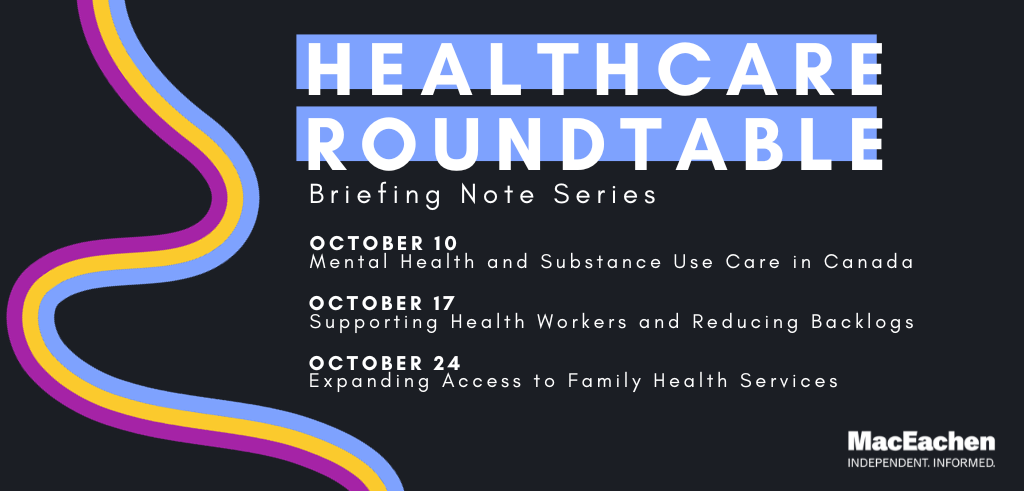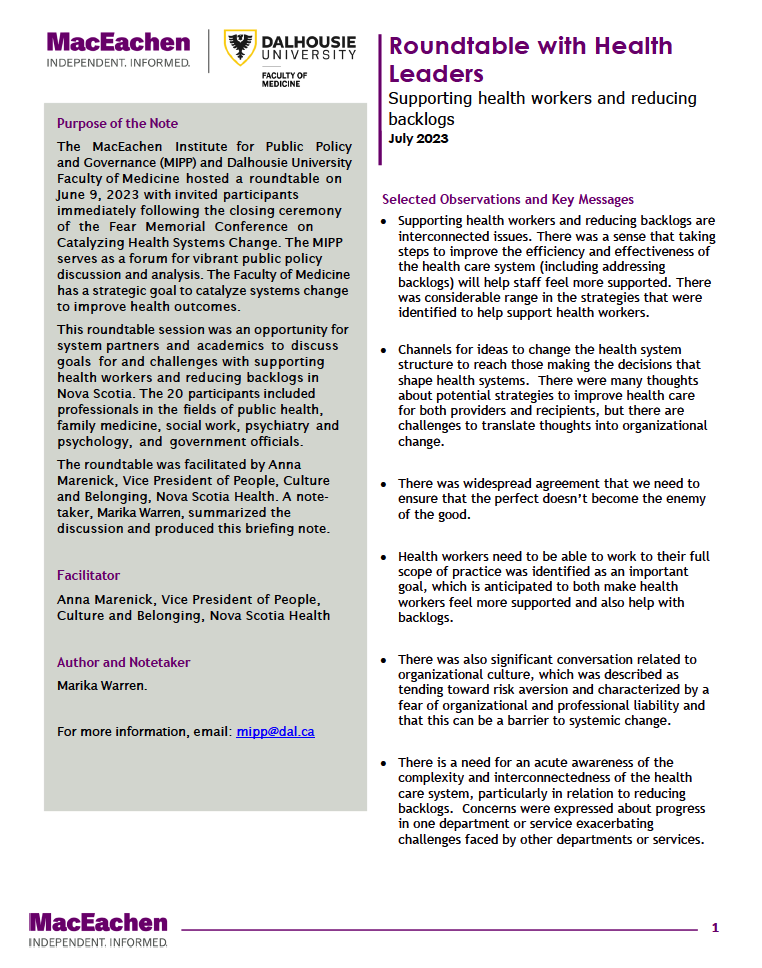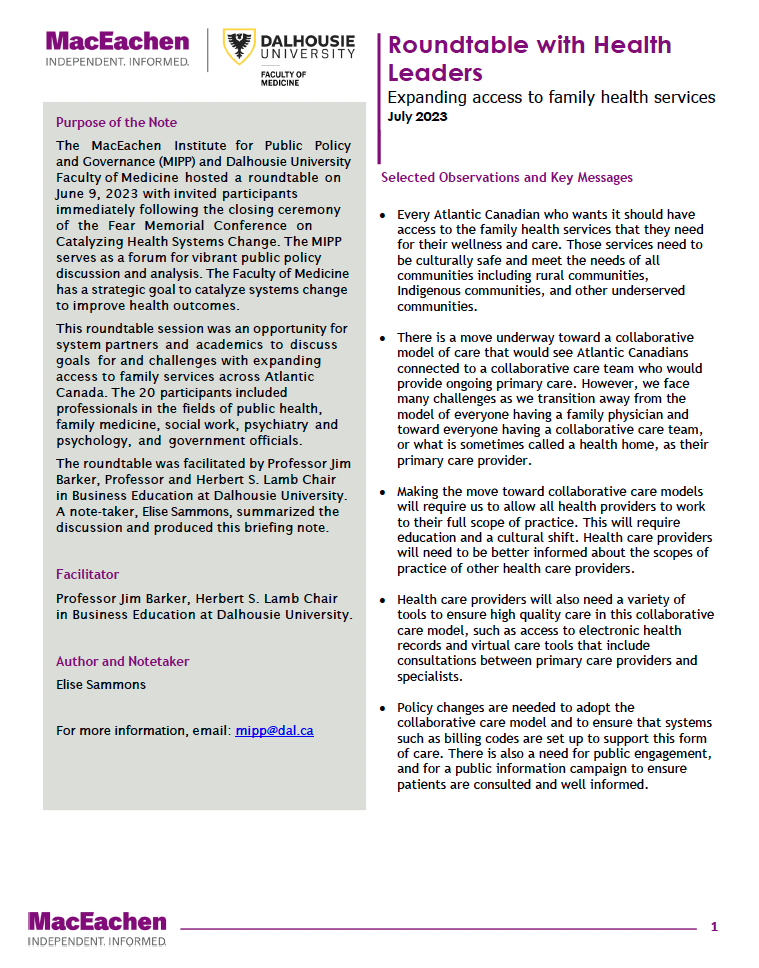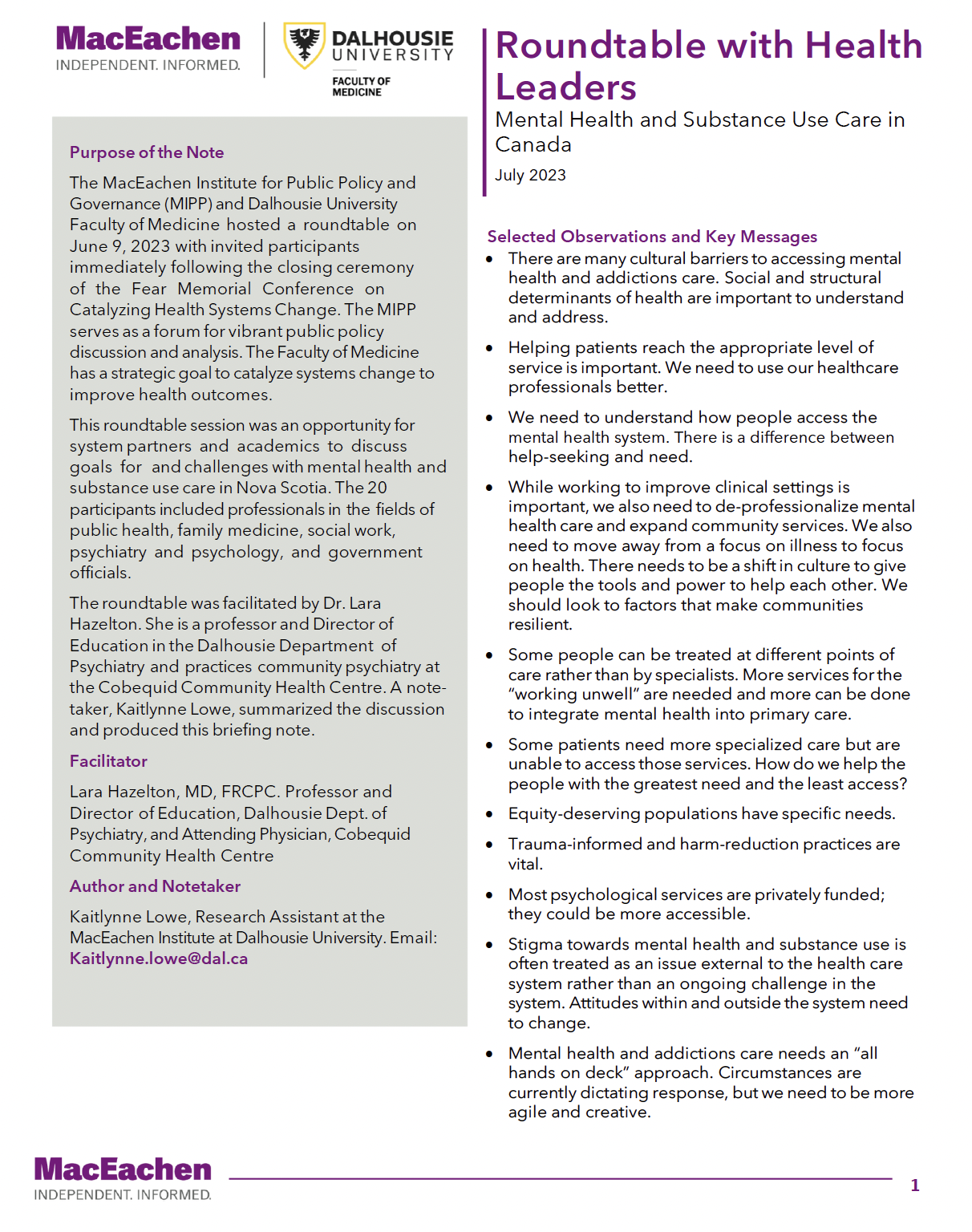Healthcare Roundtable Briefing Note Series

Ģż
In June 2023, The MacEachen Institute, in partnership with Dalhousie's Faculty of Medicine, hosted a roundtable discussion with health leaders following the Fear Memorial Conference on Catalyzing Health Systems Change. The discussion identified challenges and opportunities in the healthcare system identified by 20 professionals in the fields of public health, family medicine, social work, psychiatry and psychology, and government.
This roundtable, facilitated by Dr. Lara Hazelton, led to several key observations that are intended to be used to guide policy development in different areas of the healthcare system. These observations are outlined in a series of three briefing notes, developed by the MacEachen Institute.
Mental Health and Substance Use Care in Canada
The pandemic and ongoing opioid crisis have highlighted the need to approach mental health and addictions care as an essential part of overall health and wellness. However, there are many barriers that prevent vulnerable populations from accessing trauma-informed and culturally relevant care. Under-resourced community organizations cannot keep up with the demand for affordable services, and private care is limited to those with the means to pay for it. As governments across Canada work to address these gaps, understanding how social and structural determinants of health affect access to mental health and addictions care is key.
Supporting Health Workers and Reducing Backlogs
 Ģż
Ģż
While it is clear that backlogs in health care are detrimental to both patients and healthcare workers, finding a path forward that addresses both the impact on patient care and the wellbeing of healthcare workers is less obvious. The issues of reducing backlogs and supporting healthcare workers are interconnected, and to meaningfully improve our health system, both issues must be tackled simultaneously. While addressing the challenges our healh system is facing is critical, policymakers must be cautious of letting perfect become the enemy of the good - widespread structural change takes time, and there are opportunities to have a positive impact on the wellbeing of both workers and patients as governments seek to address the larger issue of "fixing healthcare".
Expanding Access to Family Health Services
 Ģż
Ģż
Many point to a lack of family physicians as the key problem underpinning the challenges in our health system. But improving the health system may require a cultural shift in the way we view home health care. A collaborative care model would see groups of health care practitioners from a range of specialties collaborating as a unit to provide patients with a more holistic health care experience. Moving from the classic standard of a 1-to-1 patient-to-doctor ratio to a "health team" structure has the potential to improve patient care while meeting the needs of Nova Scotia's growing population.Ģż

